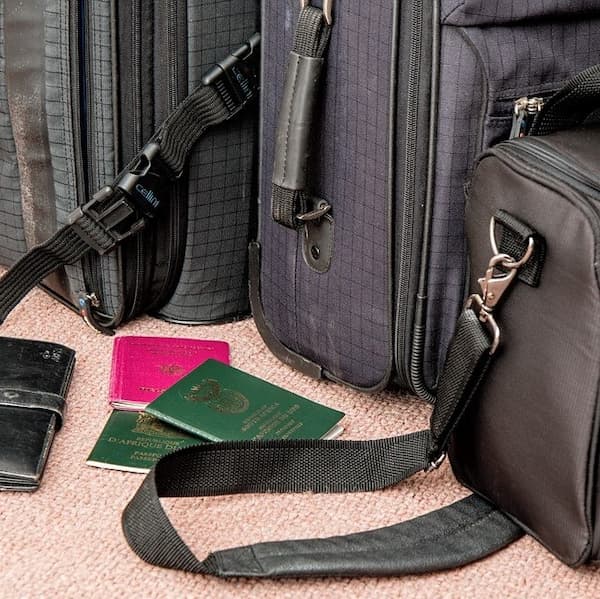Compliance
Dublin Calls Time On Golden Visas

Another country's investor visa regime has been taken off the shelf in response, so it appears, to pressure from the European Union and the OECD club of industrialised nations.
Ireland, a European Union member state, has shut its “golden
visa” investor programme for high net worth individuals about a
year after the UK closed a similar scheme amidst widespread
sanctions on Russians.
The Irish programme had been open to those investing at least €1
million ($1.08 million), Reuters (14 February) and
others reported. The scheme had brought in more than €1.2 billion
over a decade, reports quoted Justice Minister Simon Harris as
saying.
After Russia invaded Ukraine on 24 February last year, the UK
shut its programme that had required applicants to invest at
least £2 million ($2.4 million). Russians were among the most
enthusiastic applicants. Advisors said the move was
disproportionate because it applied to everyone, not just
Russians. The US, EU, Switzerland, the UK and certain other
powers have slapped sanctions on designated Russians.
In recent years “golden visas” have been attacked, for
example by the European Commission, for helping money
launderers. Defenders of these programmes, such as the Investment
Migration Council, a pan-industry group, say these fears are
misplaced and argue that smaller countries, for example, can
obtain important revenues. They also argue that rich people being
persecuted for their wealth and business need an escape route –
as demonstrated by attacks on various groups over the
centuries.
A number of schemes have come and gone. In 2014, Canada
mothballed such a programme. Last September, the European
Commission legally challenged Malta’s programme (the
Mediterranean island has witnessed a number of financial
corruption scandals). Spain and Portugal offer such programmes,
as does Dubai.
The IMC said Ireland’s move was a surprise and an example of
“colonial” thinking by the EU and other bodies such as the
Organisation for Economic Cooperation and Development.
“Given how successful the IIP has been in contributing to UN SDGs
benefiting many communities across Ireland through debt-free
capital injections into the economy, it’s very surprising that
the government would close it so abruptly,” Bruno L’ecuyer, CEO
of the IMC, told this news service. “This sudden closure without
any stakeholder consultation seems to point to political pressure
from supranational bodies who still have a very misguided lack of
understanding of what benefits these programmes have.”
“This [move] clearly demonstrates the influence over investment
and immigration policy that Brussels and the OECD have with
smaller sovereign states. It’s a colonial approach to
globalisation on an unprecedented scale; the statement by the
minister yesterday stopped me dead in my tracks,” he added.
Frictions
Ironically, this isn’t the first time Ireland, or other
jurisdictions that attract wealthy foreigners, have been attacked
by the EU. Policymakers in Brussels have occasionally scolded the
government in Dublin for its relatively low corporate tax rates –
often lower than those of the continent. (The Irish rate, which
is as low as 12.5 per cent, is slated to rise to 15 per cent in
2024.)
"The closure of the [Irish] programme will not affect existing
projects that have been approved by the government. For these, we
can continue to source the investors required to complete funding
and we will continue to be monitored by the Department of Justice
in relation to the delivery of the projects and for compliance
purposes," Daniel Hinds, COO of Bartra Wealth Advisors, said in a
note about the change. "Investors who have already been approved
by the Irish Naturalisation and Immigration Service (INIS) will
not be affected by the closure of the programme, and all future
visa renewals will be granted as long as the requirements are
fulfilled."
James Hartshorn, CEO and co-founder of Bartra Wealth Advisors,
added: "Since last year, we have been advising our clients who
were considering the IIP but had not yet made up their minds to
take action and be proactive as policy changes could happen at
any time. Ireland in particular offers a great quality of life
and a strong economy, as well as world-class healthcare and
educational systems making it an easy place for foreigners to
immigrate to." (Bartra Wealth Advisors is a subsidiary of
Ireland’s Bartra Group.)
(Editor’s note: While these visa programmes are
controversial, they are also an example of globalisation and the
increased freedoms to move around that HNW individuals and
families had taken for granted in recent years. The geopolitical
and security fears that have prompted many wealthy people, for
entirely legitimate reasons, to seek a second home in a country
such as the UK, Ireland or Spain haven’t gone away. A question
that arises is whether the immigration systems of liberal
democracies, as they apply to people of all wealth levels, need
to be overhauled so they are fair and politically
palatable.)